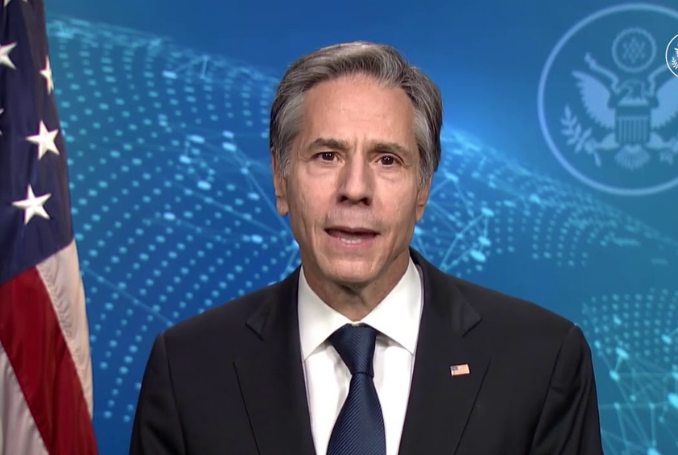
By Benay Blend
Published on March 9, 1889, “Wynken, Blynken, and Nod” is a children’s poem composed by American writer Eugene Field. The title suggests a child’s blinking eyes and nodding head, meant perhaps by suggestion to lull the child to sleep.
The poem reflects a fantasy story about three children/fishermen sailing among the stars on a boat which is actually a wooden shoe. “’T was all so pretty a sail it seemed / As if it could not be,” the verses read, “and some folks thought ‘t was a dream they ‘d dreamed / Of sailing that beautiful sea.”
The sentiment is very much like post-election American politics as Joe Biden touts the idea of a progressive cabinet that in reality is but a sham. Biden has pledged that his administration will prove “the most diverse in American history,” with participants who hold a wide array of views.
So far, his picks appear diverse only by race and gender, thus pandering to the notion that diversity in and of itself somehow equals progress.
According to Ellen Berry, author of The Enigma of Diversity: The Language of Race and the Limits of Racial Justice, diversity is “how we talk about race when we can’t talk about race. It has become a stand-in when open discussion of race is too controversial or — let’s be frank — when white people find the topic of race uncomfortable.”
For example, activist Gloria Steinem, hailed as a “feminist icon,” holds the women’s movement accountable for putting Kamala Harris in the White House, adding that Kamala Harris brings a “wealth of experience to the job as a lawyer, legislator and woman of color.”
“Far from a black feminist icon,” writes Sai Sreshta Ladegaam, her record shows that as district attorney of San Francisco she was disproportionately hard on black people as her policies affected them more than any other group.
Particularly egregious to single-parent households, the poor, families of color and homeless mothers, she supported a bill that criminalized parents for allowing their children in kindergarten through eighth grade to miss more than 10 percent of school days without a valid excuse. Indeed, Harris described as a success story how she’d brought charges against a single homeless mother of 3 who was working 2 jobs all because her children were truant.
From this example, plus many more, Ladegaam concludes that “genuine and meaningful representation happens only when the representative actively works for the emancipation and liberation of the people they are representing. Otherwise,” she continues, “it is just tokenism.”
“The big publicly notable efforts on diversity will be in the cabinet,” said Roy Neel, a former chief of staff to vice-president Al Gore.
Yet for one of the most important positions, Secretary of State, Biden has chosen Tony Blinken, whose last name graces the title’s poem. A supporter of the Iraq war and Yemen massacre, notes Philip Weiss, Blinken is known for his internationalism (i.e. imperialism).
Hailed by Israel lobby groups J Street and the American Jewish Committee, never a good sign for Palestinians, Blinken is very much in line with Biden’s support of what the former calls “the Jewish homeland.” There is not much diversity in this pick as Blinken closely follows Biden’s line.
As Michael Brown observes, Blinken might accept the Boycott, Divestment and Sanctions (BDS) movement for Palestinian freedom and equal rights as a First Amendment issue.
However, this is problematic for several reasons. According to Michael Brown, Blinken will most likely follow Biden’s lead by equating BDS with anti-Semitism, a move that discredits any Palestinian-led nonviolent movement outside of that which fosters the status quo.
In addition to undermining Palestinian movements for liberation, Blinken’s focus on free speech places concerns of the dominant group at the center, while Palestinians are fighting for rights beyond that of civil liberties, i.e. an end to the occupation.
For activists in solidarity with global movements for liberation, perhaps Palestine should be the litmus test for supporting politicians who appear progressive but fail this vital challenge. This would leave out much of Biden’s present and future cabinet, diverse as it might be.
For example, Rep. Deb Haaland (Pueblo), from New Mexico is being touted by progressives for Secretary of the Interior, yet she has been very clear about her support for Israel, a country that has destroyed olive trees and farmland belonging to Palestinians.
If “Palestine is the moral barometer of Indigenous North America,” as Nick Estes (Lower Brule Sioux Tribe) writes, where does that leave Rep. Haaland? As Assistant Professor in the American Studies Department at the University of New Mexico and co-founder of The Red Nation, Estes answers from an Indigenous/scholarly position.
Placed within the context of Native politicians who understand “that European colonialism and Indigenous genocide is criminal and immoral,” but “don’t extend the same sympathies to Palestinians, Arabs, and Muslims,” explains Nick Estes, Haaland is among those who “falsely equate aspirations of Indigenous peoples with the Zionist settler project, which requires the displacement, removal, and continued banishment of Native Palestinians from their homelands.”
As Estes notes, during her first run for US Congress, Haaland compared Native Americans getting the right to vote in New Mexico in 1948 to the creation of the state of Israel, somehow equating the two as “parallel” experiences.
“Haaland’s opportunism demonstrates that she is anything but an ally to Palestine,” Estes concludes, “and more of an opportunist willing to throw Palestinians under the bus when it benefits her political career.”
Haaland’s entry into Biden’s cabinet, then, might indeed provide diversity, but her presence there would not favor Indigenous people in Palestine, thereby allowing Israel to take over yet more Palestinian land while destroying that which is not yet under its control. If climate change is global, Israel’s actions surely should come under scrutiny by no less than our own Interior Secretary.
Kamala Harris, too, fails the test as it applies to Palestinians. According to Emad Moussa, Palestinians are glad to be rid of Trump but cautious about his successor, as well they should be. Both Biden and Harris are committed, he writes, to the two-state solution, a liberal Zionist platform that is hindered by both geographic and ideological obstacles that neither plan to solve.
Indeed, Harris has declared unconditional support for Israel, explains Ali Harb, a position that, Ali Abunimah charges, places her within the camp of segregationists, despite her hostility to such policies at home.
“It appears that Harris and Warren still think that in 2019 you can get away with being progressive,” concludes Abunimah “and even presenting yourself as an anti-racist champion – except when it comes to Israel’s lethal system of apartheid against Palestinians.
“The USA has the most uninformed electorate on the face of the planet,” charges Onyesonwu Chatoyer, organizer for the All African People’s Revolutionary Party—New Mexico. “Do you ever wonder about how incredible it is that the most powerful, expansive, and dangerous empire in the history of the world pulled off creating a citizenry” that ignores imperialism, and this at a time when its military bases span the world?”
Chatoyer’s question is quite timely, even post-election when Americans are weighing in on Biden’s potential cabinet. To remedy this situation, “the people need their own platforms,” suggests Margaret Kimberley, such as Black Agenda Report for which she is senior columnist, and I would add, too, Palestine Chronicle, media outlets,
“that will dissect the lies and obfuscations of an administration greeted with a sigh of relief by millions of people weary of Trump and his policies. Already fossil fuel companies and Congress members who benefit from their largesse are on the transition team as are chemical industry representatives slated to go to the EPA. All will end up in the White House along with self-confessed propagandists. We must be ready to engage them all.”
It would be good to remember a quote from Steven Salaita that has stuck in my mind though weeks later I cannot find the source. Paraphrased, it reads: “If genocide isn’t wrong, then nothing is wrong,” words to recall when using Palestine as a litmus test to judge Biden’s choices.
– Benay Blend earned her doctorate in American Studies from the University of New Mexico. Her scholarly works include Douglas Vakoch and Sam Mickey, Eds. (2017), “’Neither Homeland Nor Exile are Words’: ‘Situated Knowledge’ in the Works of Palestinian and Native American Writers”. She contributed this article to The Palestine Chronicle.

– Benay Blend earned her doctorate in American Studies from the University of New Mexico. Her scholarly works include Douglas Vakoch and Sam Mickey, Eds. (2017), “’Neither Homeland Nor Exile are Words’: ‘Situated Knowledge’ in the Works of Palestinian and Native American Writers”. She contributed this article to The Palestine Chronicle.







